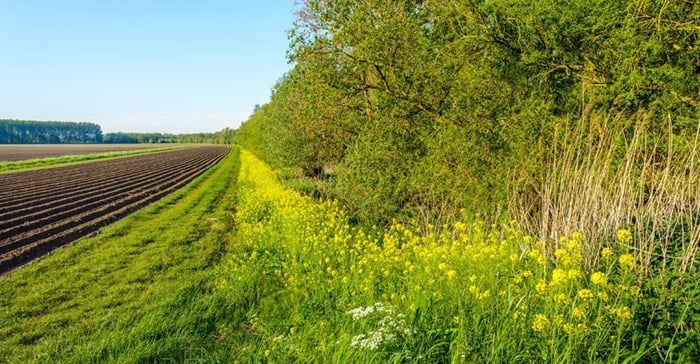






For the past eight years, Nedbank and WWF have partnered to support sustainable farming across South Africa. The next five-year phase of this work will now be scaled up to secure water source areas, strengthen sustainable local economies and improve rural livelihoods to see people living in harmony with nature.
South Africa is one of the 30 most water-scarce countries across the globe, and recent severe droughts have demonstrated how critical sufficient clean water is to maintaining economic growth and development while ensuring the health and well-being of our citizens.
A recent WWF and CSIR study revealed that 22 critical water source areas deliver most of South Africa’s freshwater, with just 10% of our land area delivering a staggering 50% of our river flows. In order to protect SA’s water security, WWF-SA has been working with key institutions to define, understand and improve the safeguarding and functioning of these areas to strengthen our national water security.
The Eastern Cape is significant as South Africa’s second-largest province with an estimated population of 7 million people comprising some 1.8 million households. It is also home to some of South Africa’s most critical water source areas – delivering close to 20% of SA’s water – and key biodiversity hotspots (including the Grasslands biome) and in urgent need of developing sustained rural livelihoods and employment for the youth.
Justin Smith, WWF-SA’s business development unit head says that the organisation is focused on scaling-up numerous sector-specific interventions across multiple land-use sectors. "We want to mobilise collaborative efforts through community-public-private-partnerships (CPPPs) and coordinating the various components of our work within integrated landscape hubs, to work collectively at landscape level to balance competing demands and affect change.
"The landscape level is often the most appropriate level of action between national and local, allowing stakeholders to understand their own impacts and explore their shared risk and joint opportunities while being able to shape and influence the future they wish to see in their region."
To achieve this, WWF – through the support of this Nedbank partnership – will partner with and support existing local NGOs, community-based organisations (CBO’s), national and provincial/ local government and private sector partners to promote the concept of Landscapes for Livelihoods.
The success of this approach has been demonstrated in the Eastern Cape’s innovative and highly successful Umzimvubu Catchment Partnership Programme (UCPP), co-founded and led by the Matatiele-based Environmental Rural Solutions (ERS) and Conservation South Africa (CSA).
Another key area of work will be to encourage agricultural and water stewardship best practice in the dairy, fruit and forestry sectors, particularly in the Kouga and Tsitsikamma regions.
By taking collective action to safeguard one of South Africa’s key water security and biodiversity hotspot regions, WWF-SA and Nedbank are ensuring that the ecological integrity of these vital catchments are maintained and restored. This will ensure that they continue to provide water, food, livelihoods, generate jobs and develop local SMMEs, and build climate resilience for local and downstream communities who rely on them.
John Hudson, national head of agriculture for Nedbank, says that Nedbank is committed to partnerships that are proven to support sustainability. "Strategically, Nedbank aims not only to be good with money but more importantly to do good with it as well. We are therefore proud to use our core business to drive the sustainability of the agricultural sector, while protecting our country’s water, food and job security and ensuring economic growth for all."
"WWF and Nedbank have been working together in various forms for almost 30 years – an incredible example of a long-term NGO/business partnership that continues to evolve and innovate in finding solutions to complex sustainability challenges in South Africa. We commend Nedbank for their investment in a critical environmental and development node for South Africa, and are excited to work with them to help achieve their ambitions under the UN Sustainable Development Goals," says Smith.
"We are proud to partner with the WWF on this new partnership," says Brigitte Burnett, executive head of Sustainability for Nedbank. "In addition to the extensive environmental and community benefits that this partnership will realise, we believe that it will open up new opportunities for us to use our financial expertise to help our clients succeed in this ever-changing and increasingly resource-constrained world."